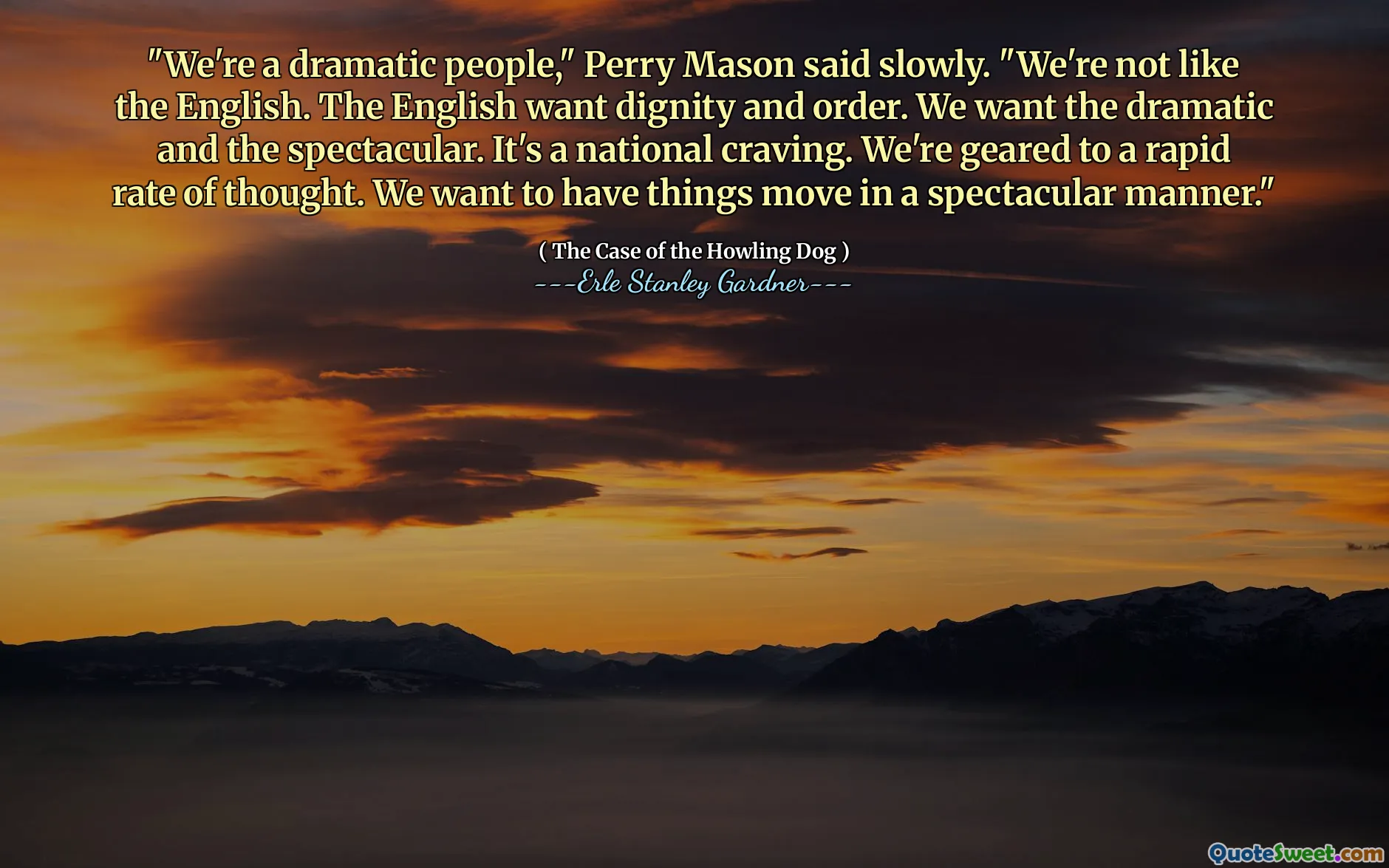
"We're a dramatic people," Perry Mason said slowly. "We're not like the English. The English want dignity and order. We want the dramatic and the spectacular. It's a national craving. We're geared to a rapid rate of thought. We want to have things move in a spectacular manner."
This quote from Erle Stanley Gardner's The Case of the Howling Dog captures a vivid and somewhat provocative commentary on cultural differences, specifically contrasting a perceived American temperament with that of the English. Perry Mason’s observation—that Americans are drawn to drama and spectacle, driven by a "national craving"—speaks to a broader reflection on identity and collective psychology. It's fascinating how Gardner uses Mason, a character renowned for his logical yet dynamic approach to legal battles, to assert that Americans are enthusiastic for rapid, striking events and thought processes. This inclination toward the dramatic may stem from the country’s diverse, often tumultuous history and rapid development, which contrasts with the English traditions emphasizing dignity and order that suggest stability and restraint. The quote invites reflection on how cultural values shape not only societal behavior but also modes of expression and decision-making. The emphasis on speed and spectacle highlights an appetite for engagement and impact, whether in media, politics, or personal interactions. In contemporary terms, this idea might explain the American media’s preference for sensationalism and the continual pursuit of innovation and disruption. Yet, it's also a reminder to consider the balance between spectacle and substance—while drama can captivate and energize, dignity and order provide structure and longevity. Overall, this quote encapsulates the tension and interplay between differing cultural ideals, highlighting the unique character traits that define and drive nations.






